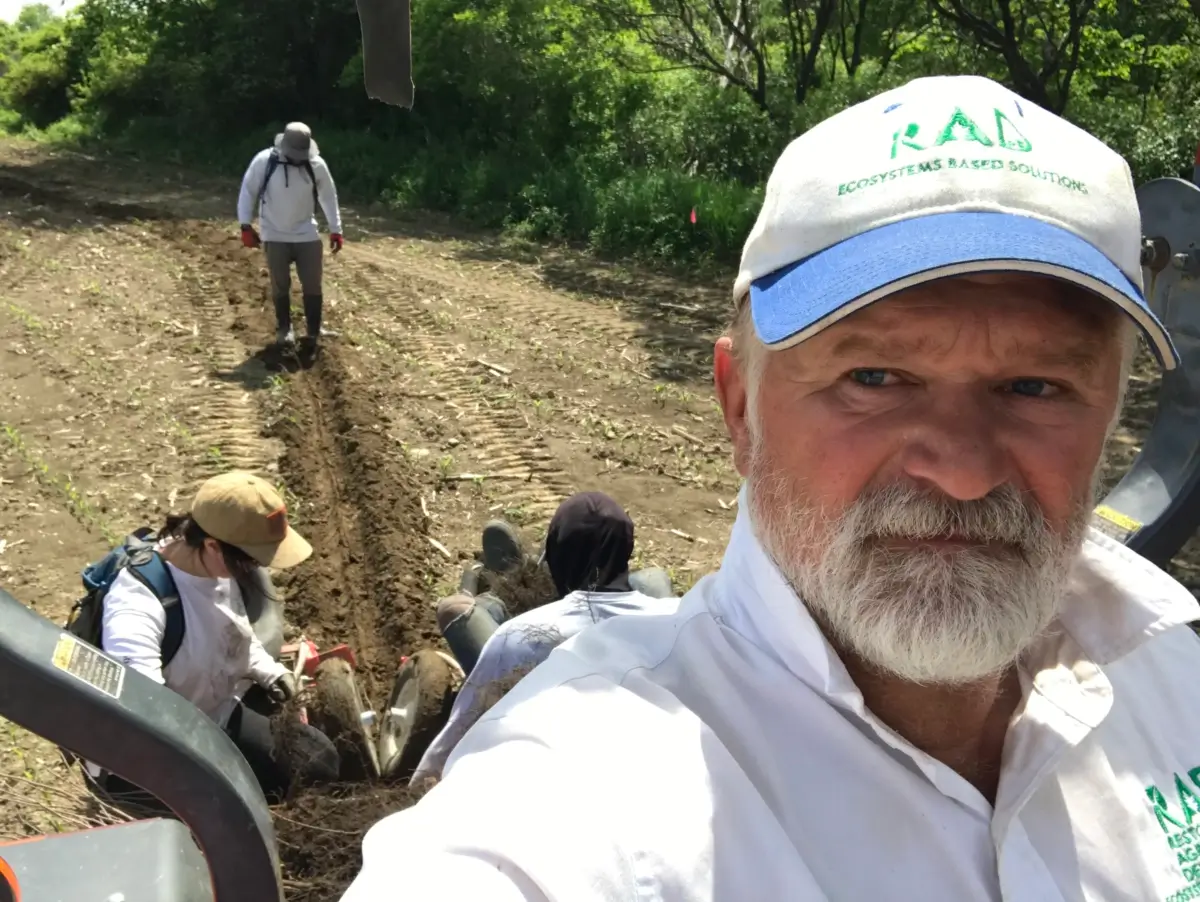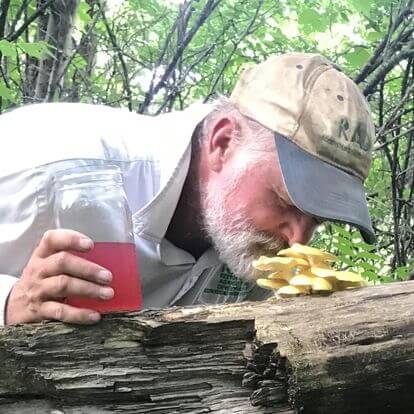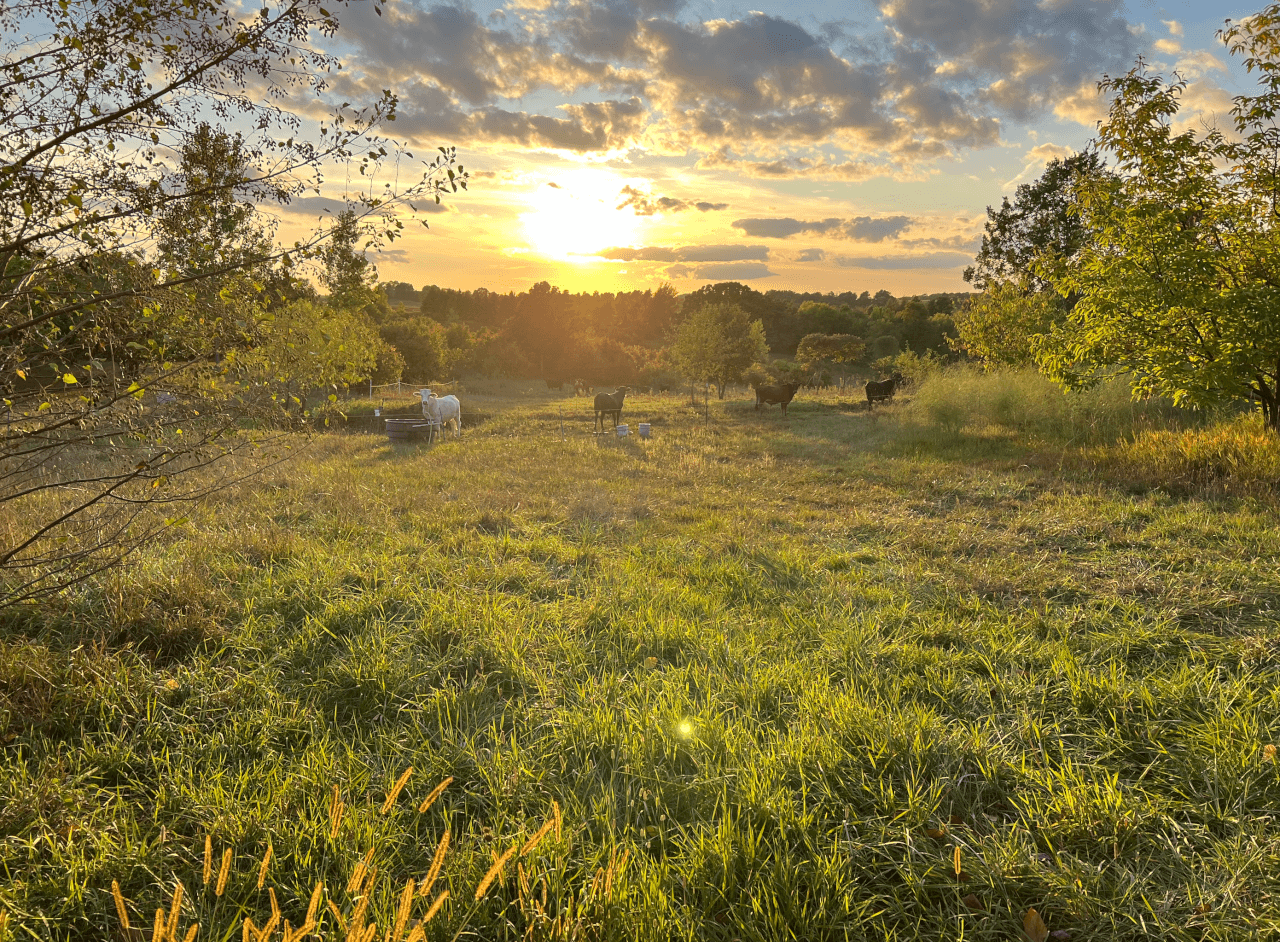Meet the Midwestern Farmer Restoring the Land by Growing Native Plants
“There's all kinds of environmental nightmares going on right now, and we need to do an ecological rehabilitation of this planet in a hurry.”
Meet the Midwestern Farmer Restoring the Land by Growing Native Plants
“There's all kinds of environmental nightmares going on right now, and we need to do an ecological rehabilitation of this planet in a hurry.”

Mark Shepard and his tree planting crew. by Mark Shepard.
Mark Shepard didn’t set out to be a farmer, let alone a visionary one. Yet, three decades after securing his first piece of land, Shepard is one of the leading voices in non-traditional farming. He’s also the founder and operator of New Forest Farm, a perennial agricultural ecosystem, head of Restoration Agriculture Development, a land restoration consulting enterprise, and author of two books. In spite of this success, Shepard’s path to farming is anything but traditional.
He grew up in north-central Massachusetts, an area Shepard dubs “the industrial wasteland,” where plastic and manufacturing were a way of life. “The river at the bottom of the hill where we lived ran different colors every day, depending on what color dyes they were dumping into it,” says Shepard. When the Cuyahoga River in Ohio caught on fire, the young Shepard asked his mother why it made the news. “I said, ‘Ours catches fire once a month,’ and she explained to me rivers weren’t supposed to do that.”
An environmental awareness began to stir in Shepard. He got a degree in ecology, and then, in 1989, secured a piece of land in Alaska, five miles away from the nearest road and 300 miles away from Anchorage, and discovered most of his food was shipped from Seattle. That supply chain didn’t make sense to Shepard. “I was surrounded by blueberries and lingonberries and all kinds of different food products that the indigenous cultures ate for time immemorial. So I thought, why not redesign my ecosystem?”

Shepard is now 35 years into his program, with hundreds of properties he’s restored across North America, all bought and paid for, free and clear. He operates his farm as well as a diversified enterprise based on smart real estate investments, selling plants, consulting and selling large, whole-sale quantities of a handful of native and non-native plant crops, such as hazelnuts and asparagus.
Combining principles from permaculture, agroforestry and ecology, Shepard pioneered what he calls restoration agriculture. This new method of farming produces food in a way that restores land and ecosystems by establishing natural communities based primarily on native, perennial plants that are high in nutrients, carbohydrates, protein and oils.
Shepard’s intentionally designed Alaskan ecosystem, supplemented with animal proteins, supplied all his food while enhancing, not degrading, the land, and he realized that restoration agriculture, a system based on native, perennial plant crops, could work anywhere. “I got good at it,” he says, “and took it right to the corn belt.”
In 1995, Shepard acquired land in Wisconsin that was degraded from years of intensive, industrial agriculture. He put his restoration skills to the test and reintroduced native food crops, including oaks, cherries, hazelnuts, chestnuts, apples, gooseberries and fungi. By restoring the Midwestern plant communities that were present before industrial farming, Shepard noticed increased soil fertility and a better appearance–it also stored water more effectively.

His methods stand in sharp contrast to farming annual crops, which destroys soil and existing perennial ecosystems. “You plant seeds that grow for a few months, and it’s done,” says Shepard. “You’ve created a desert, and there’s no longer a rich, abundant ecosystem.”
Shepard’s method manages ecological succession to optimize ecosystem health while using far less labor than traditional farming. “Right now, my ‘farming’ is that I’m a glorified hunter-gatherer, except I don’t have to go out looking for things,” he says. “They’re right where I planted them and they stay within fences. It’s really wonderful.”
Instead of buying into traditional farming, Shepard carved his own path in a way that felt meaningful. “I wanted to help accomplish massive ecological restoration, at scale, as fast as possible,” he says. His advice for farmers who want to change to a perennial agriculture system is to start researching perennial plants that would naturally co-exist in one’s ecosystem. Plant some of those plants right away, and more over time while still relying on annual crops to make ends meet. He recognizes that it’s difficult for small-scale farmers to make a living, but his methods prioritize restoring ecosystems and using creative, diversified income sources to support the cash flow from farming.
Follow us
This work is licensed under a Creative Commons Attribution-NoDerivatives 4.0 International License.
Want to republish a Modern Farmer story?
We are happy for Modern Farmer stories to be shared, and encourage you to republish our articles for your audience. When doing so, we ask that you follow these guidelines:
Please credit us and our writers
For the author byline, please use “Author Name, Modern Farmer.” At the top of our stories, if on the web, please include this text and link: “This story was originally published by Modern Farmer.”
Please make sure to include a link back to either our home page or the article URL.
At the bottom of the story, please include the following text:
“Modern Farmer is a nonprofit initiative dedicated to raising awareness and catalyzing action at the intersection of food, agriculture, and society. Read more at <link>Modern Farmer</link>.”
Use our widget
We’d like to be able to track our stories, so we ask that if you republish our content, you do so using our widget (located on the left hand side of the article). The HTML code has a built-in tracker that tells us the data and domain where the story was published, as well as view counts.
Check the image requirements
It’s your responsibility to confirm you're licensed to republish images in our articles. Some images, such as those from commercial providers, don't allow their images to be republished without permission or payment. Copyright terms are generally listed in the image caption and attribution. You are welcome to omit our images or substitute with your own. Charts and interactive graphics follow the same rules.
Don’t change too much. Or, ask us first.
Articles must be republished in their entirety. It’s okay to change references to time (“today” to “yesterday”) or location (“Iowa City, IA” to “here”). But please keep everything else the same.
If you feel strongly that a more material edit needs to be made, get in touch with us at [email protected]. We’re happy to discuss it with the original author, but we must have prior approval for changes before publication.
Special cases
Extracts. You may run the first few lines or paragraphs of the article and then say: “Read the full article at Modern Farmer” with a link back to the original article.
Quotes. You may quote authors provided you include a link back to the article URL.
Translations. These require writer approval. To inquire about translation of a Modern Farmer article, contact us at [email protected]
Signed consent / copyright release forms. These are not required, provided you are following these guidelines.
Print. Articles can be republished in print under these same rules, with the exception that you do not need to include the links.
Tag us
When sharing the story on social media, please tag us using the following: - Twitter (@ModFarm) - Facebook (@ModernFarmerMedia) - Instagram (@modfarm)
Use our content respectfully
Modern Farmer is a nonprofit and as such we share our content for free and in good faith in order to reach new audiences. Respectfully,
No selling ads against our stories. It’s okay to put our stories on pages with ads.
Don’t republish our material wholesale, or automatically; you need to select stories to be republished individually.
You have no rights to sell, license, syndicate, or otherwise represent yourself as the authorized owner of our material to any third parties. This means that you cannot actively publish or submit our work for syndication to third party platforms or apps like Apple News or Google News. We understand that publishers cannot fully control when certain third parties automatically summarize or crawl content from publishers’ own sites.
Keep in touch
We want to hear from you if you love Modern Farmer content, have a collaboration idea, or anything else to share. As a nonprofit outlet, we work in service of our community and are always open to comments, feedback, and ideas. Contact us at [email protected].by Darcy Duda, Modern Farmer
May 17, 2024
Modern Farmer Weekly
Solutions Hub
Innovations, ideas and inspiration. Actionable solutions for a resilient food system.
ExploreExplore other topics
Share With Us
We want to hear from Modern Farmer readers who have thoughtful commentary, actionable solutions, or helpful ideas to share.
SubmitNecessary cookies are absolutely essential for the website to function properly. This category only includes cookies that ensures basic functionalities and security features of the website. These cookies do not store any personal information.
Any cookies that may not be particularly necessary for the website to function and are used specifically to collect user personal data via analytics, ads, other embedded contents are termed as non-necessary cookies.